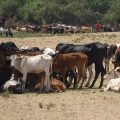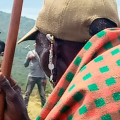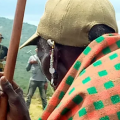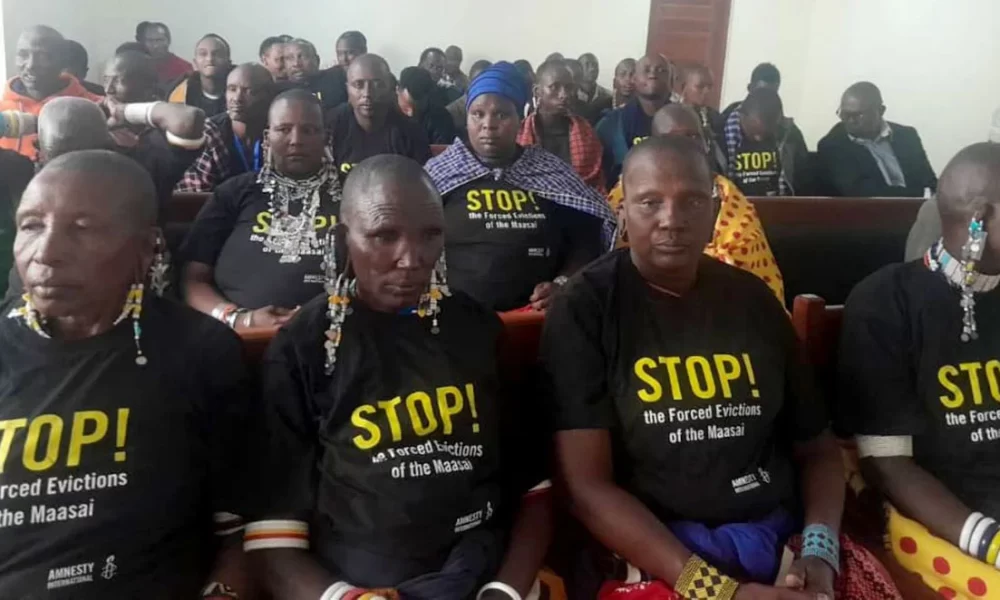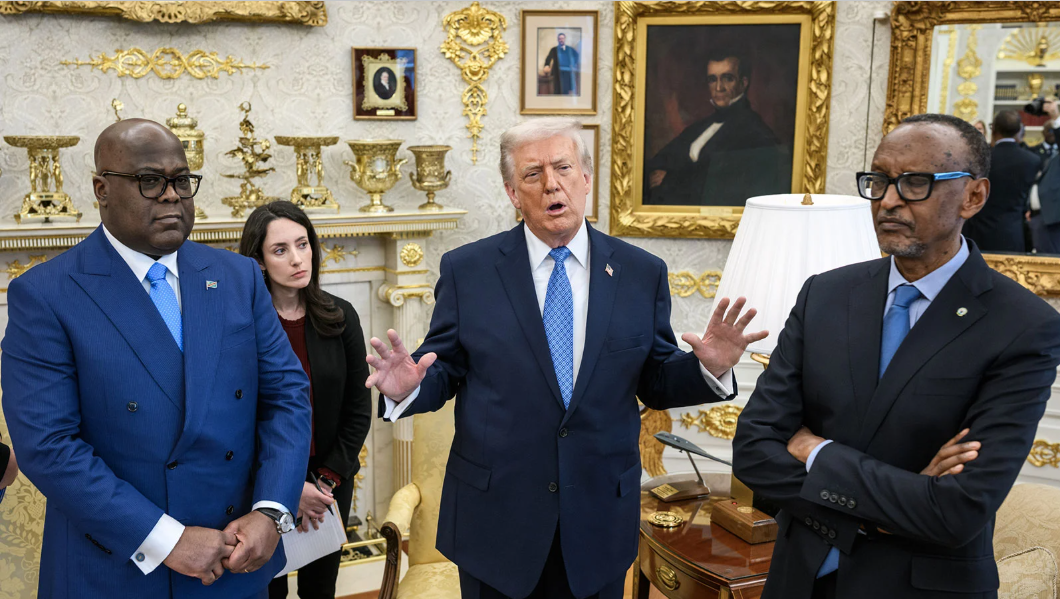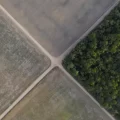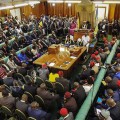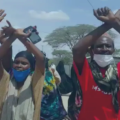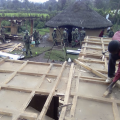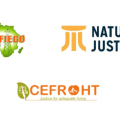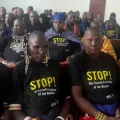- Tanzanian High Court has dismissed a case filed by Maasai communities to return land violently seized by the government in June 2022 to establish the Pololeti Game Reserve for trophy hunting by the Emirati Royal Family in Loliondo.
- In violation of Tanzanian law, impacted Maasai communities were neither consulted nor compensated for being forced from their land, critical for over 96,000 people living in legally registered villages in the area.
- The ruling sets a dangerous precedent for Indigenous land rights across Tanzania and calls into question the independence of the judiciary that openly cited tourism revenues as a factor in its decision.
On October 24, 2024, the High Court of Tanzania dismissed a case (Misc. Civil Cause No. 18 of 2023) from impacted Maasai pastoralists challenging the creation of the Pololeti Game Reserve, which has resulted in crippling livelihood restrictions and widespread evictions to allow for trophy hunting in the area by the Emirati Royal Family. The shocking ruling deals a blow to Indigenous land rights across Tanzania and raises serious questions regarding the independence of the Tanzanian judiciary.
“The ruling has far-reaching consequences not only for the Maasai of Loliondo but to all people near protected areas. With this ruling, Maasai in Monduli, Simanjiro, Longido, and Ngaresero are now also at the risk of eviction without compensation,” said Denis Oleshangay, one of the advocates representing the community in the case.
On June 8, 2022, the government forcefully seized 1,500 square kilometers of land in Loliondo to create the Pololeti Game Controlled Area for the exclusive use of the Emirati Royal Family. Maasai communities protesting the theft of their land were met with violent retaliation by security forces who opened fire on the protestors. At least 30 people, including women, children, and elderly, were wounded. One elderly man was shot and remains missing over two years later while his family is still seeking answers. Thousands were displaced and fled to Kenya where they faced hunger and sickness. To suppress dissent, community members and civil society leaders have been criminalized and imprisoned for months on false charges.
Presiding over the case, Judge N.R. Mwaseba ruled that the needs of local communities should not take precedence over the value of the land to the economy. “The decision to promulgate the Pololeti Game Reserve was executed in good faith by the Government with a view to protect and ensure sustainable conservation in order to protect the natural resources, including the wild animals as a major source of foreign currency in our country…I have demonstrated above that the tourism sector is among the giant sectors contributing heavily to the national budget. It deserves close protection, including protection of the areas reserved for that purpose.”
In September 2023, in response to a separate case brought by impacted villagers (Misc. Civil Cause No. 21 of 2022(link is external)), the High Court of Tanzania ruled that because communities were not properly consulted by the Ministry of Natural Resources and Tourism (MNRT) prior to the land use change, the Pololeti Game Controlled Area was illegal. The victory was short lived as President Samia Suluhu Hassan had also issued a separate decree (GN No. 604 of 2022) to upgrade the same area to become the Pololeti Game Reserve in October 2022. While communities defeated in court the first attempt by the MNRT to seize their land, they were forced to file another case (Misc. Civil Cause No. 18 of 2023) against the President’s Pololeti Game Reserve decree. This was dismissed despite questionable new evidence proving adequate consultation by the government.
“The discrepancy in rulings by the High Court demonstrates how the government can keep shopping for judges until it gets a favorable outcome, making a mockery of justice,” said Anuradha Mittal, Executive Director of the Oakland Institute. “Impacted communities must scramble to take action in the courts and even when they win, the government can still circumvent the ruling by issuing another decree.”
In the dismissed Misc. Civil Cause No. 18 of 2023, advocates for the communities documented how the creation of the game reserve has impacted over 96,000 people whose livelihoods depend on access to land for grazing and watering cattle. Pastoralists have faced massive fines and had livestock arbitrarily seized and killed by wildlife authorities despite the fact that pastoralists play a vital role in protecting the ecosystem. Over a dozen villages are now considered illegal within the Game Reserve, while villagers were neither consulted nor compensated for losing their lands, as required by Tanzanian law.
Live ammunition fired by Tanzanian security forces during demarcation of the Pololeti Game Controlled Area in June 2022
Despite international condemnation of the government’s violent land demarcation to create the protected area in June 2022, the Judge shockingly concluded that “The allegation that the state apparatuses such as police, army, wildlife rangers harassed the inhabitants of the promulgated area is not substantiated. The featured videos do not show whether they relate to establishment of GN No. 604 of 2022.”
The United Arab Emirates (UAE)-based Otterlo Business Company (OBC) – which runs hunting excursions for the country’s royal family and their guests – will reportedly control hunting in the area despite the company’s past involvement in several violent evictions of the Maasai, including in 2017, burning of homes, and the killing of thousands of rare animals in the area.
“When a government recklessly violates the rights of its citizens, and domestic courts offer little hope for redress, international scrutiny and action is paramount. The US and other donor governments who finance so-called conservation in Tanzania with tax-payer money must take immediate action to help secure justice or be held accountable for their complicity,” Mittal concluded.
Advocates for the impacted villagers have already filed a notice of intention to appeal the ruling.
Original Source: oaklandinstitute.org
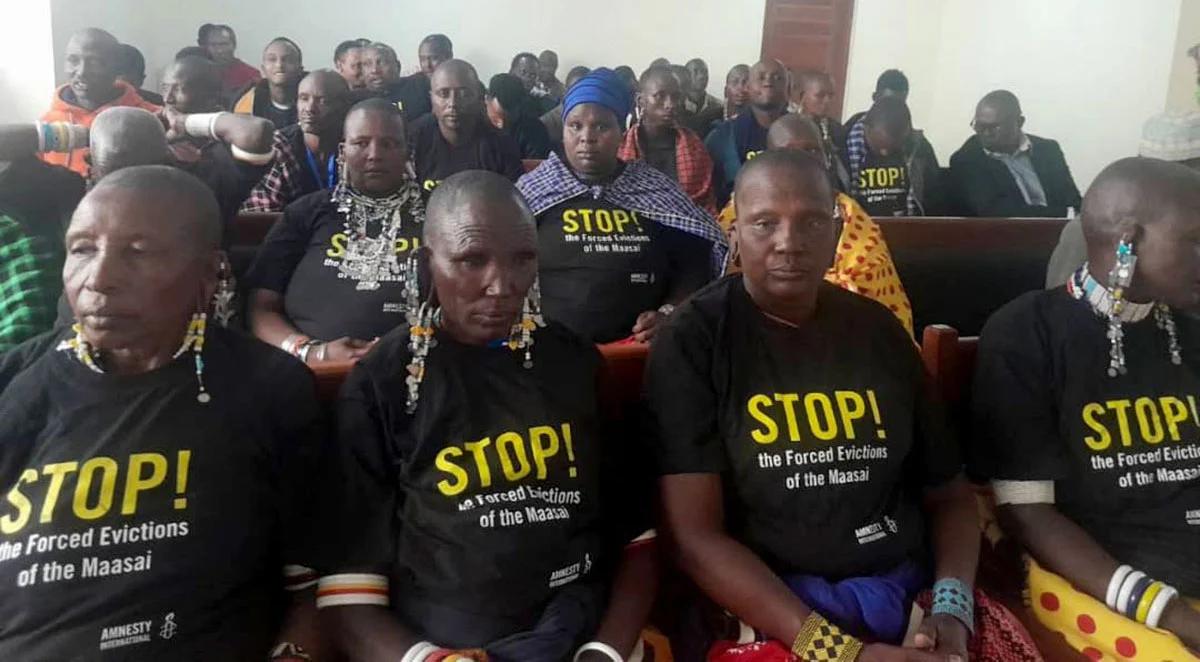

 NGO WORK2 weeks ago
NGO WORK2 weeks ago
 MEDIA FOR CHANGE NETWORK2 weeks ago
MEDIA FOR CHANGE NETWORK2 weeks ago
 MEDIA FOR CHANGE NETWORK2 weeks ago
MEDIA FOR CHANGE NETWORK2 weeks ago
 MEDIA FOR CHANGE NETWORK2 weeks ago
MEDIA FOR CHANGE NETWORK2 weeks ago
 MEDIA FOR CHANGE NETWORK1 week ago
MEDIA FOR CHANGE NETWORK1 week ago
 MEDIA FOR CHANGE NETWORK1 week ago
MEDIA FOR CHANGE NETWORK1 week ago
 MEDIA FOR CHANGE NETWORK2 days ago
MEDIA FOR CHANGE NETWORK2 days ago
 MEDIA FOR CHANGE NETWORK1 day ago
MEDIA FOR CHANGE NETWORK1 day ago

